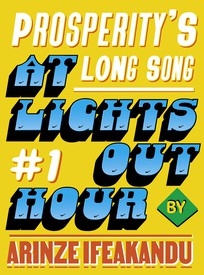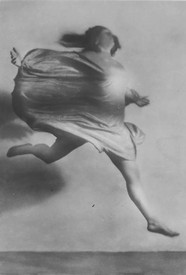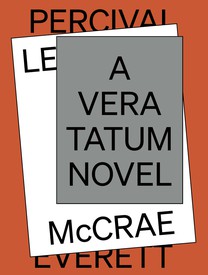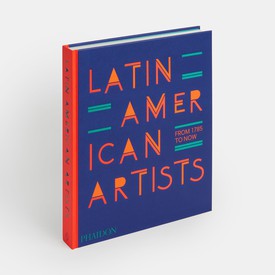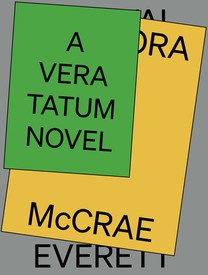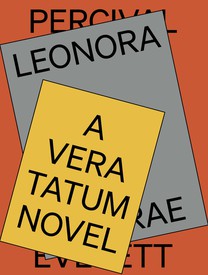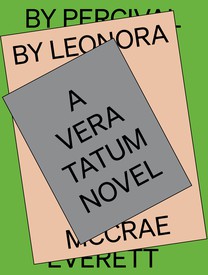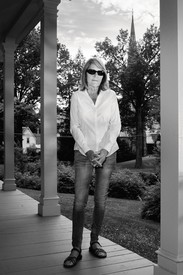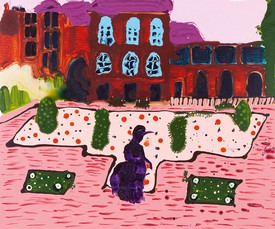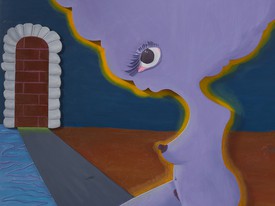
Venita Blackburn’s writing has appeared in thenewyorker.com, Harper’s, Ploughshares, McSweeney’s, the Paris Review, and other publications. The winner of the Prairie Schooner book prize in fiction for her collected stories, Black Jesus and Other Superheroes, in 2017, she is the founder of the literary nonprofit Live, Write (livewriteworkshop.com), which provides free creative-writing workshops for communities of color. Blackburn’s second collection of stories, How to Wrestle a Girl, was published in the fall of 2021. She is an assistant professor of creative writing at California State University, Fresno.
When a little boy named Julius disappeared from a small Alabama town, much happened elsewhere. A seamstress pricked her finger, four people took naps simultaneously, a wife threw hot coffee on her husband, fourteen of them read a newspaper, some literature was written. Some danced, prayed, gossiped, and fought for fun and not money. Men worshiped other men for the machines they created that did slightly different things from other machines. They wrote books. They considered economics. They harvested fields. While the town hunted for the hunted, Rebecca and Sadie found each other in the woods that night. There is a special kind of guilt that comes from abandoning the search for a lost child in order to make out against a tree; it is marvelous and deep bodied, a cabernet sauvignon of selfishness and disorder. My ghoul and I tasted the richness of their desire wrenched out of a nobler obligation, the tart red smoke of blasphemy. I am a poltergeist. To me there is no such thing as sin. There is no such thing as duty. There is no such thing as mortality.
The woods in this part of the South were complex as the air holes in a three-layer butter cake. Rebecca and Sadie knew them all. Only when someone is born into this kind of nature does it become as familiar as running your tongue along the backside of your teeth. Each ridge of the tooth carries memory of a good meal, a means toward sustenance, a comfort, a worry, the looming inevitability of decay and loss become sudden and piercing. Old salted meat lies in between the molars. The growing humidity of the night only added to the ferocity of their lust. It was embarrassing to witness from so deep within the cave I’d hollowed out for myself beside Sadie’s own soul.
The inappropriateness of it all kept my ghoul, my love, their mischief deeply cultivated more and more. Had Rebecca and Sadie been born 1,200 years sooner or 200 years later, they could’ve been diplomats. They could have negotiated the peace between the warring neighbors, used their knowledge of human tendency to unravel the irrational dysfunction that makes similar creatures want to eat each other. Still, to my kind, the gnashers, the so-called human beings, were all the same, the equivalent of broccoli and a hammock on fire. They were a thing to put into a salad for nourishment or to throw across the room against an enemy’s chest and let explode for dramatic effect. Unfortunately, I’ve been tormented with higher expectations. Decades before and after being in that town, I’ve met old men in musky bars that smell of licorice and vermouth. They tell me they’ve lived too long when no one is interested in their voices and their crotches no matter how much money they have. I always think how lovely it is to anticipate the end of their time with such resignation and foolishness.
The night was warm in spots. Sadie moved along the odd pockets of warm air, calling the boy’s name until she thought she saw someone else. Rebecca, she said again and again, and there Rebecca appeared as if the night became her, arms bare, outlined in the moonlight, an impossible distance between them like a woman and her shadow. Sadie felt dread and pain and disbelief. I know because I felt them too, the recipe for addiction, for love, though my affection was for the other within Rebecca, a vice on her soul. We all needed relief, however temporary. Sadie hung her lantern on a poplar branch. Rebecca did the same and they moved to the dark side of the tree. With arms straight by her side and head tilted back to expose her neck for who knows what, a slit or a kiss, Sadie closed her eyes and breathed. Then I couldn’t see what was going on, even as I could feel my ghoul’s presence, close and content. Soft fingertips grazed our throat, then ears, elbow, waist. Sadie shivered.
Am I already dead? Sadie asked. Is this my punishment?
Rebecca laughed and leaned into her lover. The warmth of them overwhelming.
Do you suffer so?
I could feel the sting in the eyes, hear the bell of worry for the dead ringing in Sadie’s brain. Ugh. My patience had evaporated most thoroughly at that point, the perfect stage for an exercise of passion without the eyes of strangers, their judgments, their preoccupations, their wars and their tax on the living. I pushed Sadie down. I pushed her deep from the surface of her own consciousness to a place a little less pleasant than sleep but more quiet. I kissed Rebecca. I pressed her against the poplar and did the things. Shocking. To her? I’m thinking yes, since she slapped me for it, but did not take her other hand from Sadie’s waist. It was my turn to laugh and lean and taunt except I couldn’t remember how to speak that language and mumbled something less than coherent and sexy. Possession is hard. Possession is really hard.
When a person’s mind is addled by intoxicants, grief, madness, or love, they can sometimes see me, even if I’m wearing someone else. They tend to ask lots of questions like When am I going to die? Where’s my daughter? Why do you torture us? What does God eat for breakfast? Where is the road to Mars? Or Why is everything like this? They’re all the same, the people not the answers. They have that locked-door stare, as if they’d just arrived at a bakery and there was a “Closed” sign swinging in the breeze. They just can’t believe it, and that is the moment they live in forever.
I am not clairvoyant. I do not like ghosts. They drag the past around like horses whipped in a circle over a muddy track until their own bones are dug up or the house they died in burns to the ground. Even that is not a guarantee. Nope. I like the right now, where eating thirty-two Hostess cupcakes in a row is not just a good idea, it is a revelation, a thing to savor. The future is often merciless though occasionally a gift. The future of Rebecca, Sadie, the vanished boy, the whole town, could’ve been many things after that night.
The boy could’ve been found, the cry of his mother’s voice shuddering through the woods, a chord of relief that even the toads would have recognized. The softness of his chest and arms like ripe tomato skin could’ve been punctured and cobbled by mosquito bites. Otherwise, the boy could have been unharmed, tired for a day and a half then full alive for years to come, living another seven decades to work in a lumber mill, marrying at fifteen, fathering eleven children, burying two, setting his mobile home on fire and suffering third-degree burns along his chest from carrying out his furniture in the flames, and dying divorced and happy at home. The town and its neighbor could’ve formed a truce, admitted to the improbability of friendship for another century, and generally minded their own business. Rebecca and Sadie could’ve completed the pageantry of mourning a husband, then started a fruit-pie business, adopted an orphaned child, and sent her to a school somewhere far north in a haven of mixed promises of dignity. They could’ve watched each other age like apricots drying in the sun, laughed about it all, and died seven months apart, an old widow and a spinster, celebrating nightly the bliss of being inconsequential in the minds of their peers. My ghoul and I could’ve escaped, recognizing that the strain of immortality is best born together. We could’ve been a nest of rats blanketing the last food stores of a starving village or rotted deer carcasses prancing through the moss. We could’ve been terrifying and fabulous, predators of mayhem, indecision, inconvenience, selfishness, and pride. How beautiful it could’ve been if all of them, all of us—the gnashing people, the lost child, the doomed stupid lovers, the murderers, the plumbers and hairdressers, astronauts, saints, and check-fraud perpetrators—if all of us could’ve been left alone.
Rebecca receded so far from the crest of her consciousness that she almost looked like a thing between species, but only to someone not paying close attention. I knew that new face well. When I first met my ghoul we were in Bogotá, I was torturing a rich matriarch with irritable-bowel syndrome, and they were still learning possession through trial and error on a fishmonger with a gambling problem. I helped ease the gambling debts for a favor or two that of course I had to disguise as service for their affection. The goal is not to perpetuate stereotypes here. Ghouls are not the cause of mankind’s suffering; they just like it a lot. There is no better suffering than love unless a whole-ass war is nearby. Maybe I’m attracted to narcissists, immortal, amorphous, gooey, soul-plundering, eater-of-nightmares kind of narcissists. I am not a crazy exgirlfriend. This is just my process. I remember the look on their face, that changed face, more ghoul than human, more eternal than finite, that look of suspicion and recognition of love, love that persisted because of the pain not despite it. They were repulsed. I’d overshot my shot. It happens.
A fly crawled out of Rebecca’s ear and took flight into the darkness. When we, Sadie and I, should’ve been repulsed at the sight, the fusion of rot and desire, I was enamored. Rebecca, my ghoul, grimaced.
A bell rang. A bell rang again and again. The shouts of the people combing the woods began to rise in pitch and generate an anxious hurried rhythm. A generation later, there would come a waterslide seven stories high known auspiciously for multiple decapitations yet just as auspiciously remaining in operation until a court order shut the park’s gates. Losing control during a possession feels like going down that waterslide and being decapitated. Sadie from deep inside the husk of her own body heard the bell and recognized the meaning and fought like a gladiator to have her body back. So there I was pressed down again, the head of my figurative soul lopped off while Sadie pulled Rebecca to the sound of the bell back in town.
Sadie held Rebecca’s hand while running, turned to her and laughed. They giggled as if they were in a game and Rebecca held on tighter before the laughing stopped abruptly. Certainly they were entitled to the relief that the bell declared. The worry would end, the search would end, they would all run to a truth, whatever that truth happened to be. There were no promises of any kind in the note that rang across the night, just that the search for the child was over. Sadie stopped midstride and Rebecca collided into her, nearly taking them both down. Whatever nimbleness resides in young women that ’70s horror films fail to capture kept the two standing. The trees thinned and the light from the streetlamps of the town swelled into view. Sadie and Rebecca abandoned their lanterns in the forest to burn their fire out in the twilight. Running in the dark came easily.
We’re almost there, Rebecca said. Why are you afraid?
It’s cold, Sadie answered.
The trees and the blind darkness held a warmth that evaporated the closer we approached the wood buildings and dirt roads. Behind them every leaf wore a luster from the moonlight, a concerto of insects played, even the wild hogs, turkeys, and water snakes put the hum of their sleep to a gentle pleasant pulse. Children are made to believe that monsters live in the dark, that creatures like my ghoul crave havoc and blood crawl along the hours deep after sunset and long before sunrise. Children are made to believe many lies. All by herself, with her heart so torn between obsession and nobility, Sadie could see the pain that lived in the light. The sweat on their lips and collars dried in the chill. A man rushed past the pair, brushing Rebecca’s shoulder on his way. Then another. The bell continued and the call to come home demanded an answer. Rebecca turned to Sadie, took Sadie’s face in her hands, and asked, Will you let me go? For a moment there was a chance to undo every worry and return to the dim safety of ordinary living.
A poltergeist does not have a wide range of solutions to humanity’s problems. We usually trip people down stairs, boil butter inside of refrigerators, start a fire or two or thirteen, maybe connect sewage pipes to shower stalls, the usual party tricks. I don’t always get invited to the party because I stay even when the people don’t give us their energy. The others call me a perv because, well, I do like to watch. I should’ve left a long time ago.
This is what people do when they lose their children, the best of themselves, to negligence, cruelty, stupidity, or the thunder of an unpreventable accident: they decorate their kitchens with cut flowers and boil cinnamon to calm their nerves. Women look at the sky for a sign that it’s ok to leave the house, some sprinkle powdered bleach around their doors for protection, a few ask their God for many selfish things, they check on their jewelry, they read their mail, dress neatly, eat and fuck at appropriate intervals while thinking of little else while the days continue. Sometimes people are so wrecked by living that the intangible silk of their souls practically slips through their pores. It is then that they see me too, at a bus stop, a Lamps Plus, or the courtyard of a children’s hospital, full of animal circus topiary. They never ask me how I’m doing so I return the favor and do the same. Then I ask other things. Why do you watch the moon so expectantly? Why are your memories so bad? Why do you blame everything else for all that comes to you? Why do you gamble with your last dime and dollar, lose it all, and ask “Why me Lord” again and again? Why do you pray to the thing you corrupt? Why do you sleep in rot and dream of youth? Why do you forget yourselves every three centuries to just start over? Why are you so afraid of death? Pain? The unfamiliar? Each other? Aging? Poverty? Your own body odor? Growing up? Dependence? Independence? Judgment? Why do you choose debt over freedom? Why must you always justify your murders? Why do you believe you can own anything at all when even your body is a rental?
I tell them to have fun soon, because a life completed in less than 100 years is very soon to me. All people are starving infants. God never eats and is always hungry. The only key to any door is already in their hands. They look at me and laugh as if it’s the first time and the sensation gathers deep in their nerves and presses their eyes and lungs into tearful suffocation.
Text © Venita Blackburn
Read “Memoirs of a Poltergeist: Part 1,” “Memoirs of a Poltergeist: Part 2,” and “Memoirs of a Poltergeist: Part 4”
